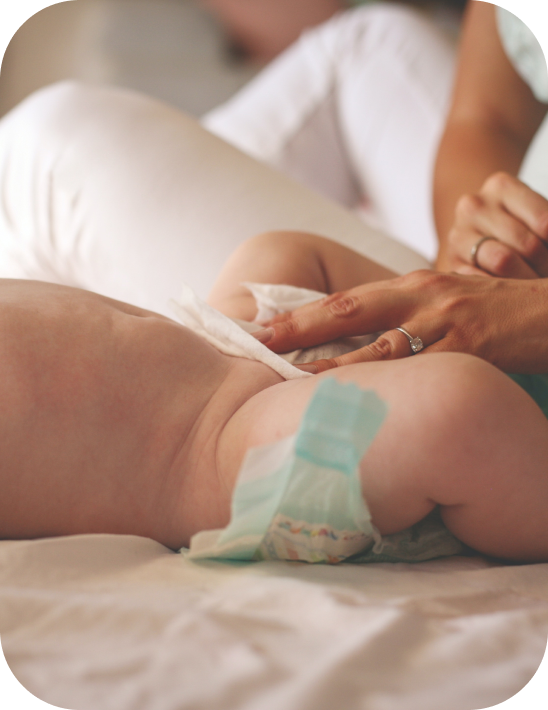Diarrhoea is the passing of loose, watery poo/stools. It can be acute (sudden) or chronic (long-lasting). Acute diarrhoea is a common digestive disorder in babies and it can come on quite suddenly. Acute diarrhoea is defined as three or more watery or loose stools per day lasting for around seven to 10 days, 14 days at most. Chronic diarrhoea lasts longer than 2 weeks. It is usually caused by an illness and will not go away until the illness or condition has been treated.
But be aware that during the first few months of life (0-3 months or newborn stage), babies can pass up to 8 stools/day, often yellowish in colour and thick like peanut butter. This is perfectly normal.
However, if your baby has acute or chronic diarrhoea, make sure you contact your baby’s doctor/GP, and make sure he/she gets plenty of fluids, as it is a major cause of dehydration. Also, look out for a change in your baby’s poos/stool consistency rather than just the number of poo’s they produce in a day.



